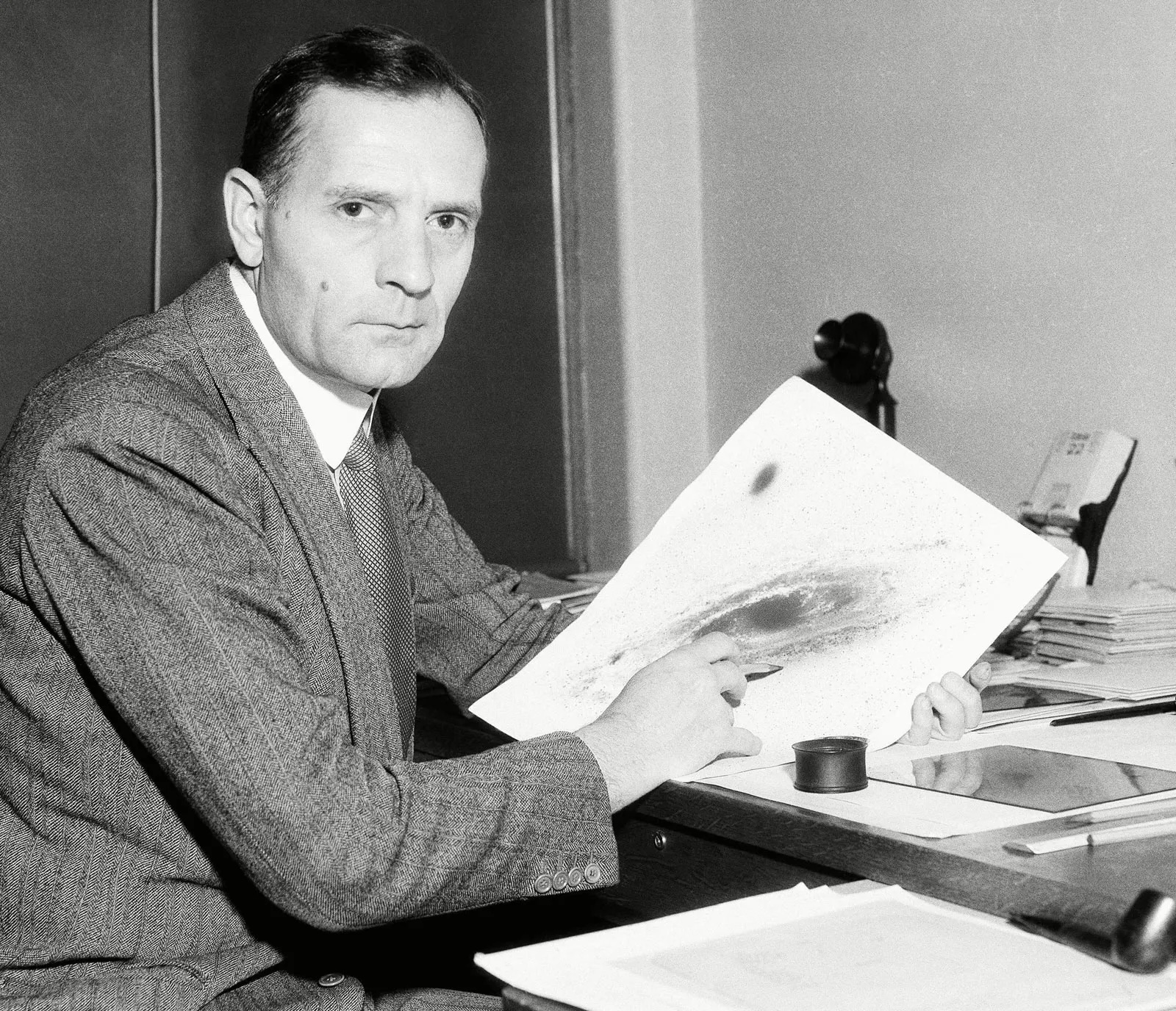Edwin Hubble, born on November 20, 1889, in Marshfield, Missouri, was a pioneering American astronomer whose discoveries revolutionized our understanding of the universe. His work provided the first evidence of galaxies beyond the Milky Way and demonstrated that the universe is expanding, laying the foundation for modern cosmology.
Hubble’s early life was marked by a diverse range of interests. He excelled academically and athletically, winning a scholarship to the University of Chicago, where he initially studied law. However, his passion for astronomy eventually led him to switch fields. After earning his bachelor’s degree, Hubble studied at the University of Oxford as a Rhodes Scholar, where he continued his astronomical pursuits. Upon his return to the United States, he earned a doctorate in astronomy from the University of Chicago.
Hubble’s career took a significant turn when he joined the staff at the Mount Wilson Observatory in California in 1919. There, he had access to the newly built 100-inch Hooker Telescope, the most powerful telescope in the world at the time. This instrument allowed Hubble to observe celestial objects with unprecedented clarity.
In the early 1920s, Hubble made his first major discovery. By observing the Andromeda Nebula (then thought to be a part of the Milky Way), he identified Cepheid variable stars within it. These stars have a known relationship between their brightness and their pulsation period, which allowed Hubble to calculate their distance from Earth. His calculations showed that the Andromeda Nebula was far too distant to be within our galaxy, thus proving that it was a separate galaxy altogether. This discovery expanded the known universe from a single galaxy to a vast expanse filled with countless galaxies.
Hubble’s most groundbreaking work came in 1929 when he formulated what is now known as Hubble’s Law. By studying the redshift of light from distant galaxies, he observed that galaxies are moving away from us and that their speed of recession increases with their distance. This observation provided the first empirical evidence for the expansion of the universe, a cornerstone of the Big Bang theory. Hubble’s Law mathematically describes this relationship and has been instrumental in our understanding of cosmic expansion.
Hubble’s discoveries had profound implications for the field of cosmology. They challenged the prevailing notion of a static universe and suggested a dynamic, ever-expanding cosmos. His work laid the groundwork for future research into the origins and fate of the universe and continues to influence theoretical and observational astronomy.
Throughout his career, Hubble received numerous accolades and honors. He was elected to the National Academy of Sciences and awarded the Gold Medal of the Royal Astronomical Society. However, despite his monumental contributions, Hubble never received the Nobel Prize, as there was no category for astronomy during his lifetime. Nonetheless, his legacy is commemorated in other ways, most notably with the Hubble Space Telescope, launched in 1990. This orbiting observatory has provided some of the most detailed images of distant galaxies, star-forming regions, and other cosmic phenomena, continuing Hubble’s legacy of exploration and discovery.
Curiously, Hubble was also known for his diverse interests outside of astronomy. He was an accomplished athlete, a skilled lawyer, and even served in the military during World War I. These varied experiences enriched his perspective and contributed to his holistic approach to scientific inquiry.
Edwin Hubble passed away on September 28, 1953, in San Marino, California. His contributions to astronomy have had a lasting impact, fundamentally altering our understanding of the universe and our place within it. Hubble’s work bridged the gap between theoretical physics and observational astronomy, transforming our view of the cosmos and inspiring generations of scientists. His legacy endures in the continued exploration of the universe and the quest to unravel its deepest mysteries.
